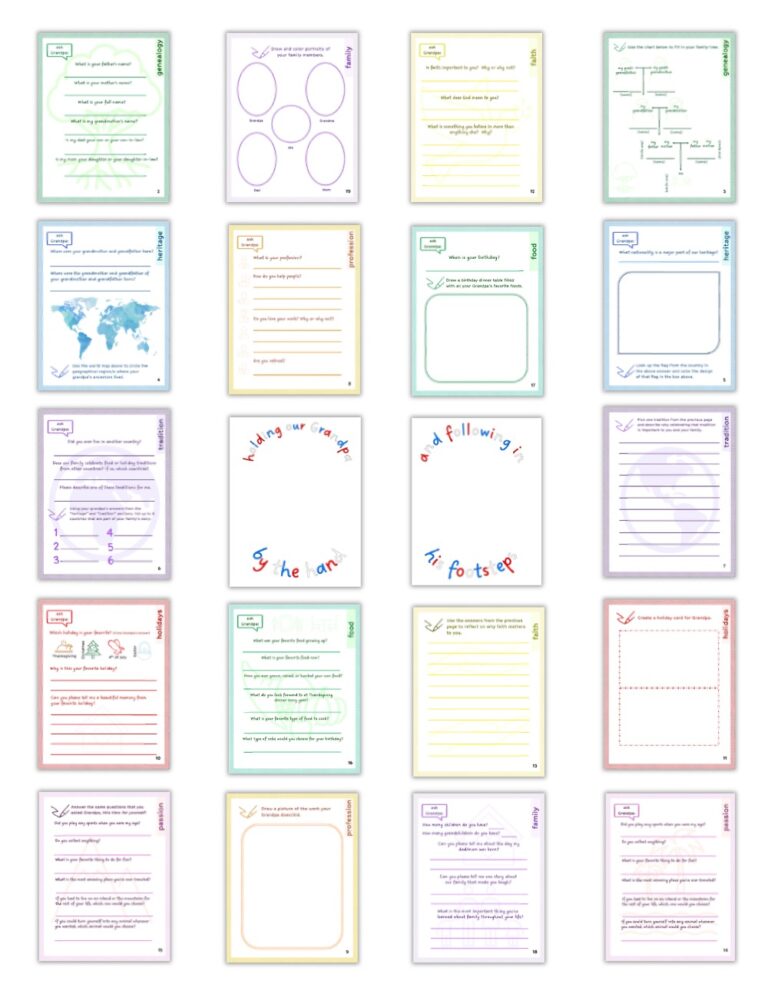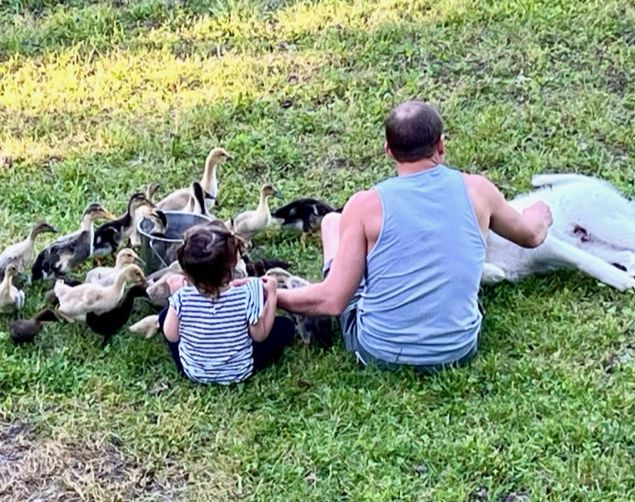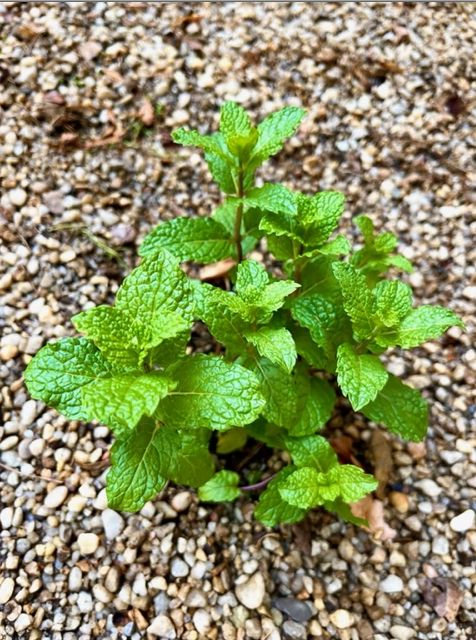The Rest is Silence
A coot beat the waters of the sea
“Quiet in the wilderness,” margaret wise brown
In the silence all around
In the silence of the sea
In the silence of nowhere
In the silence of the sea
A fish jumped
The seaweed popped
and the sand sighed
In the low tide.
Our world is growing louder. I feel it day by day, jarring at the fringes of my mind, grating like fine sandpaper. I crave calm like water and seek out the silence of growing things, which is not really silence at all. It is more like a music of rustles and chirps, of slow breezes rippling brackish waves, of nest-building, sun streaking through pine trees, and ospreys taking to the sky. It’s a green silence. It’s nature’s symphony obliterated by the rush of cars and blare of ambulances, the blue light of iPhones, and the hazy smell of sewers.

Our world is growing louder. Everyone has an opinion to proclaim, a secret to reveal, or a plot to twist. Everyone’s busy waiting for a newer phone, a better car, or the next season of a favorite show. We even fill our waiting with noise: with anticipation, with temptation–with anxiety.
We have forgotten how to be silent.
Sometimes, I watch my newborn nursing at my breast and become lost in her absolute beauty. There is such surrender in her sleep, such utter trust in her heavy, perfect limbs. Her lashes dust her cheeks like the arc of charcoal wings. Her tiny form curls against me in total surrender. She has given herself over to silence. And sleep. And rest.

I have learned many things from my nearly four-year-old daughter, Cecilia, who was born with visual impairment. She has taught me a different form of surrender. She has taught me patience beyond the patience I flattered myself I already had. She has taught me how to pray when I feel none of my prayers are being answered.
But above all things, Cecilia has taught me how to listen. Like most of her development, Cecilia’s speech was delayed. We are still actively engaged in trying to teach her polite and kind patterns of speech. Cecilia doesn’t speak often, and when she does, the pressure to say the right words causes her intense anxiety. Instead, Cecilia listens. She listens intently and constantly. Her ears show her more than her eyes, so she listens to determine what is happening around her, who has entered the room, and where the furniture and walls are located.
We play classical or instrumental music for Cecilia regularly. We also play her stories and read aloud to her frequently. These sounds guide the rhythm of her life. She doesn’t speak often. Instead, you watch her beautiful eyes strain to focus and her head immobilize. She moves into stillness and into silence without effort and without drama. She processes, understands, and then, only once the sometimes unbearable seconds or minutes have ticked by, she responds.

Our seven-year-old, by contrast, cannot stop talking. He seeks constant engagement and constant affirmation. The pressure for a response is sometimes so overwhelming that we send him to his room just to have a short break–just to feel like we can take a breath. The struggle to teach him the value of silence–of listening–is exhausting.
Such a silence reigned before the creation of anxiety.
The Portal of the Mystery of Hope, Charles Peguy
Before the beginning of the reign of anxiety
Such a silence will reign
now a silence of light,
When all this anxiety will have been consummated, When all this anxiety will have been exhausted.
When they will have drawn all the water from the well.
It took a while for my husband and I to realize that the more we talked to Cecilia, the more anxiety it caused her to give the correct response. It took even longer for us to comprehend that the more we talked to our son, the more anxiety it seemed to cause him to initiate more meaningless conversation, more empty commentary, and more thoughtless questions.
To cope with raising 2 children who are utterly opposite in character and temperament, I wrote out 5 parenting rules that we keep on our fridge to reference in moments when we feel our sanity fraying at the edges. The first rule is, “Ignore what you can.” The second rule is, “Talk less.”
So often children are just narrating their experience of life. It isn’t necessary or necessarily good for children for their every flaw in understanding to be pointed out and picked apart. Instead, I find that calmly narrating my every day activity, from drawing a carrot with sidewalk chalk to cooking dinner, helps engage the children in a step-by-step exploration of the world surrounding them.
Our experience has been that engaging in lengthy–especially disciplinary–conversation with children is rarely beneficial to either party. Children are capable of understanding (often quicker than we give them credit for) what pleases and displeases their parents. Often, a simple, “No, thank you,” and gentle, physical enforcement of the desired behavior is more than enough to convey the message.

For all humans, talking initiates relationality. Whether personal, social, or business, talking implicitly requests a response, and through that response, an engagement or conversation. As a result, talking necessarily involves the pressure to respond.
In other words, talking can induce anxiety–especially in children.
We all could benefit from talking less. We all could remember that it’s better not to speak at all if our speech can do nothing to benefit the situation. And we all could benefit from silencing the voices of guilt and depression that have a greater capacity to compromise our ability to parent than nearly anything else.
What you are thunders so loud that I cannot hear what you say.
ralph waldo emerson
Actions speak louder than words. This Emerson quote can just as aptly apply to parenting struggles as it can to business relations or a collapsing marriage.
Children, in essence, are little scientists constantly conducting experiments to determine the boundaries and limitations of the world into which they were born. No less, children learn through mimicry and helplessly regard their parents with hero-worship, often well into adulthood.
We all could benefit from saying less while parenting, and our children will learn instead from our behavior. The more we say, the more involved, personal, and emotional the confrontation/enforcement of boundaries can become.
We all could benefit from saying less in marital or familial disagreements. More often than not, a spouse or a family member knows enough to read between the lines. It’s rare to regret not saying a statement in anger. Words have the capacity to tear apart relationships, to destroy trust, and to cripple confidence.
We have forgotten how to be silent.

In the same way that there is value and fulfillment in delaying gratification, there is value and fulfillment in biting your tongue on words spoken in anger until a time when you can rephrase with compassion and patience.
When angry, count ten, before you speak; if very angry, an hundred.
Thomas Jefferson
A child is particularly raw and vulnerable to the terror of disappointing a parent. The desire to please is so strong in children in part because parents are the source of safety, satiety, and security for children. If the parents are angry with the child, the child’s entire world can feel threatened. It is an enormous power for a parent to wield.
Children are creatures of instinct and impulse–not intention. They very literally do not understand what they are doing most of the time. Without comprehension present, can there be true intention? Without intention present, can there be true culpability?
Like most mammals, children are more literate in nonverbal behavior (tone and body language) than verbal communication. As a result, it takes very few words to accurately and efficiently communicate your pleasure or displeasure to a child. Similarly, it takes the simplest physical touch or gesture to communicate your wishes to your child.

Sometimes, when our son cannot stop talking, we simply smile, hug him, and tell him that he is loved. Or when Cecilia is spinning in endless, verbal loops, we simply cup her cheek, place a fallen strand of hair behind her ear, and wait. Within a minute or two, she will usually quiet herself, calm down, and escape the anxiety.
Every afternoon, we have quiet time. The children are not required to nap, but they are required to have quiet, calm, and independent play alone in their rooms. We have found this to be a useful tool in teaching children the value of silence. And when the anxiety is too high or the words flow too fast. . .
A guarded smile behind a quiet finger to the lips.
A gentle squeeze on the hand, thumb stroking smooth skin.
Fingertips trailing from brow to chin, eyes softening.
Palm cupping the back of the head, so much smaller than your own.
Enfolding arms, sometimes lifting and redirecting.
And if you must speak . . . a whispered, “I love you.”
Let us look for secret things
“Forget About Me,” Pablo Neruda
somewhere in the world,
on the blue shore of silence
or where the storm has passed,
rampaging like a train.
There the faint signs are left,
coins of time and water,
debris, celestial ash
and the irreplaceable rapture
of sharing in the labour
of solitude and sand.

Our world is growing louder.
We have forgotten how to be silent.
And we cannot teach our children something we have never learned.
Often, I lay awake into the warm and shifting night, the house still and surrounding me, the breathing of my husband and children like heartbeats in the dark. I measure time by the tug of my baby’s mouth and the feel of my milk flowing, her steady gulping and quiet sigh as she drifts on rivers lit by starlight.


The sleep of innocence can reach depths I seem to have forgotten. For me, rest is as broken as the silence, colored by the purple aching of back and limbs, the neon flashing of mind, and the white burn of grief that can never fully leave me. I cannot reach the depths, and so I bask in the shallows, taking the rest as it comes, letting the sound of my family breathing reassure me, again and again, that, for now, hearts are beating, lungs are inflating, and bodies regenerating.
I have started to study the silence, to listen to what it’s teaching me. I watch Cecilia’s intent face as she hears the sound of the waves lapping against the shore and my newborn’s face as her lids flutter and fall, flutter and fade, flutter and. . . forget.
She can still give herself over to rest even on nights that come without a star. She is still a creature of silence–still just emerged from that timeless, amniotic ocean where color, sound, and heat all repeated, “I love you, I love you, I love you. . .”
If you listen to the silence, you can hear its echo. The primordial message which the placenta first speaks to every human being is: Rest. Grow. Be. Become . . . You are loved. It is the one message that every child needs to hear. It is the one message that every adult needs to hear. It is the message spoken by silence.
The rest . . . is believing.








